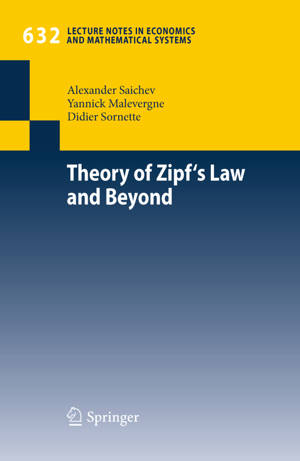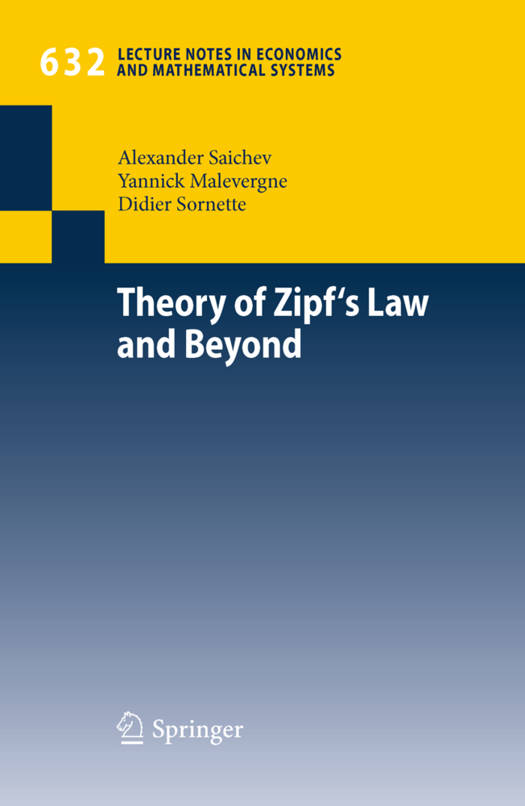
Bedankt voor het vertrouwen het afgelopen jaar! Om jou te bedanken bieden we GRATIS verzending (in België) aan op alles gedurende de hele maand januari.
- Afhalen na 1 uur in een winkel met voorraad
- In januari gratis thuislevering in België
- Ruim aanbod met 7 miljoen producten
Bedankt voor het vertrouwen het afgelopen jaar! Om jou te bedanken bieden we GRATIS verzending (in België) aan op alles gedurende de hele maand januari.
- Afhalen na 1 uur in een winkel met voorraad
- In januari gratis thuislevering in België
- Ruim aanbod met 7 miljoen producten
Zoeken
€ 125,95
+ 251 punten
Omschrijving
Zipf's law is one of the few quantitative reproducible regularities found in e- nomics. It states that, for most countries, the size distributions of cities and of rms (with additional examples found in many other scienti c elds) are power laws with a speci c exponent: the number of cities and rms with a size greater thanS is inversely proportional toS. Most explanations start with Gibrat's law of proportional growth but need to incorporate additional constraints and ingredients introducing deviations from it. Here, we present a general theoretical derivation of Zipf's law, providing a synthesis and extension of previous approaches. First, we show that combining Gibrat's law at all rm levels with random processes of rm's births and deaths yield Zipf's law under a "balance" condition between a rm's growth and death rate. We nd that Gibrat's law of proportionate growth does not need to be strictly satis ed. As long as the volatility of rms' sizes increase asy- totically proportionally to the size of the rm and that the instantaneous growth rate increases not faster than the volatility, the distribution of rm sizes follows Zipf's law. This suggests that the occurrence of very large rms in the distri- tion of rm sizes described by Zipf's law is more a consequence of random growth than systematic returns: in particular, for large rms, volatility must dominate over the instantaneous growth rate.
Specificaties
Betrokkenen
- Auteur(s):
- Uitgeverij:
Inhoud
- Aantal bladzijden:
- 171
- Taal:
- Engels
- Reeks:
- Reeksnummer:
- nr. 632
Eigenschappen
- Productcode (EAN):
- 9783642029455
- Verschijningsdatum:
- 18/11/2009
- Uitvoering:
- Paperback
- Formaat:
- Trade paperback (VS)
- Afmetingen:
- 156 mm x 234 mm
- Gewicht:
- 267 g

Alleen bij Standaard Boekhandel
+ 251 punten op je klantenkaart van Standaard Boekhandel
Beoordelingen
We publiceren alleen reviews die voldoen aan de voorwaarden voor reviews. Bekijk onze voorwaarden voor reviews.









